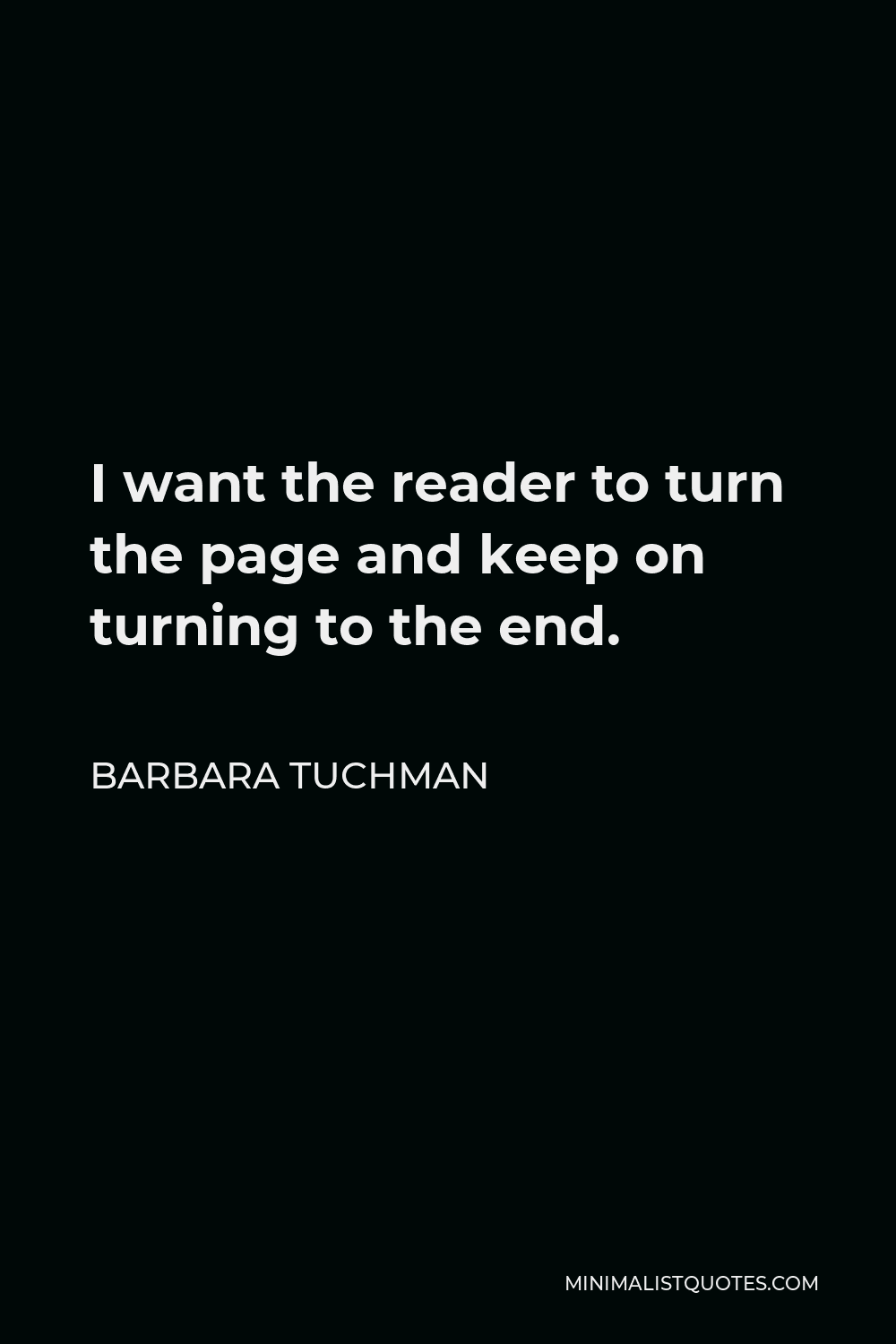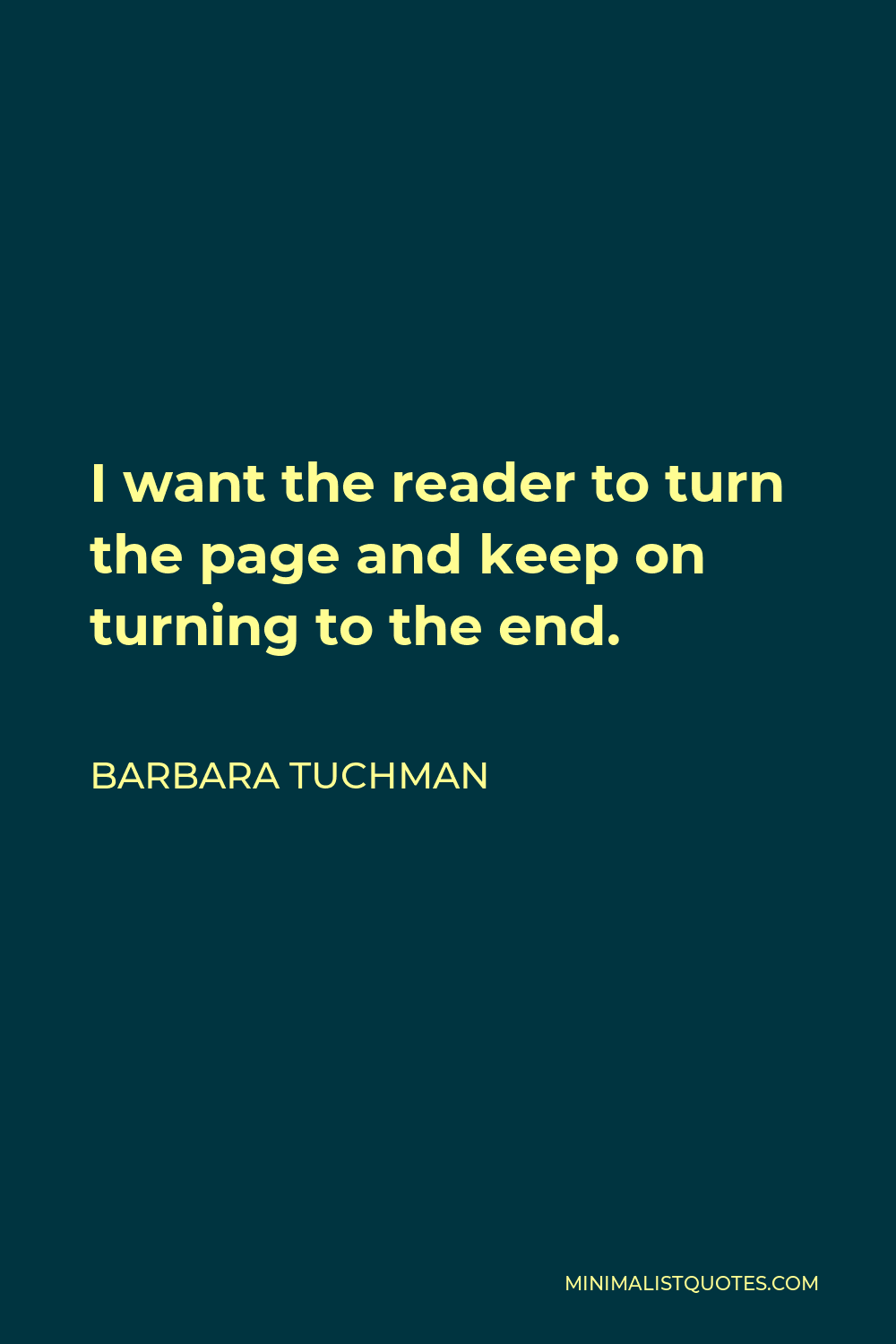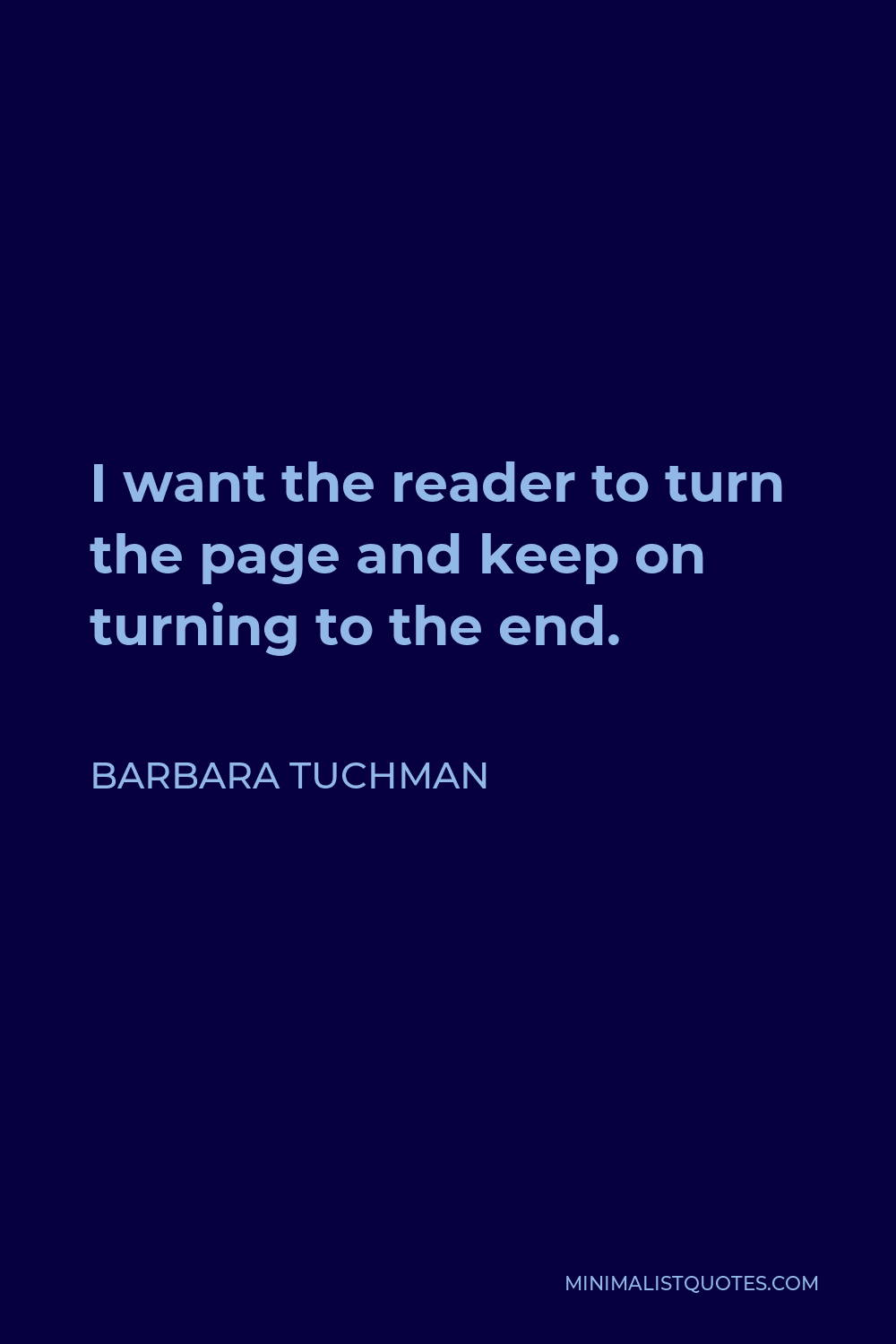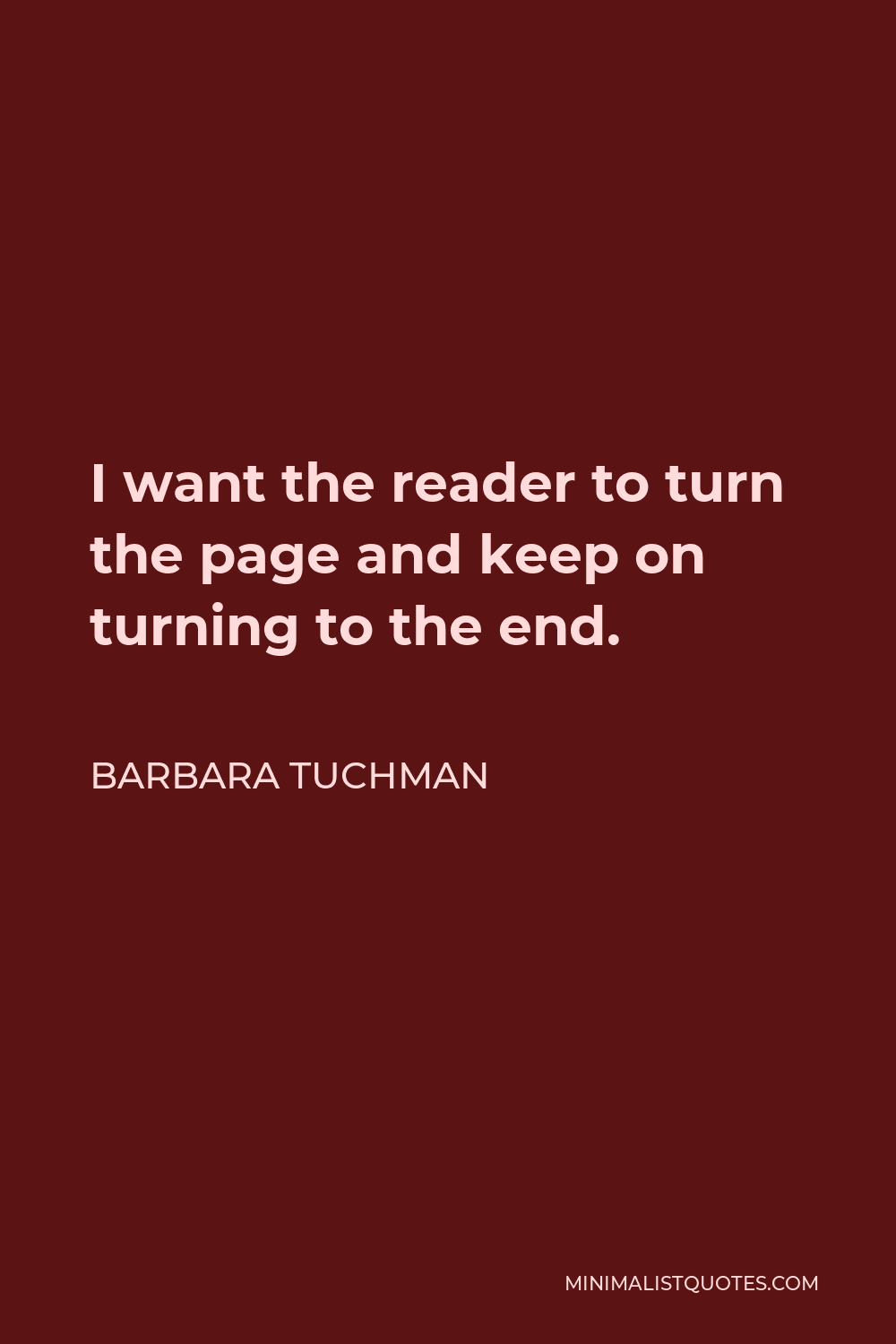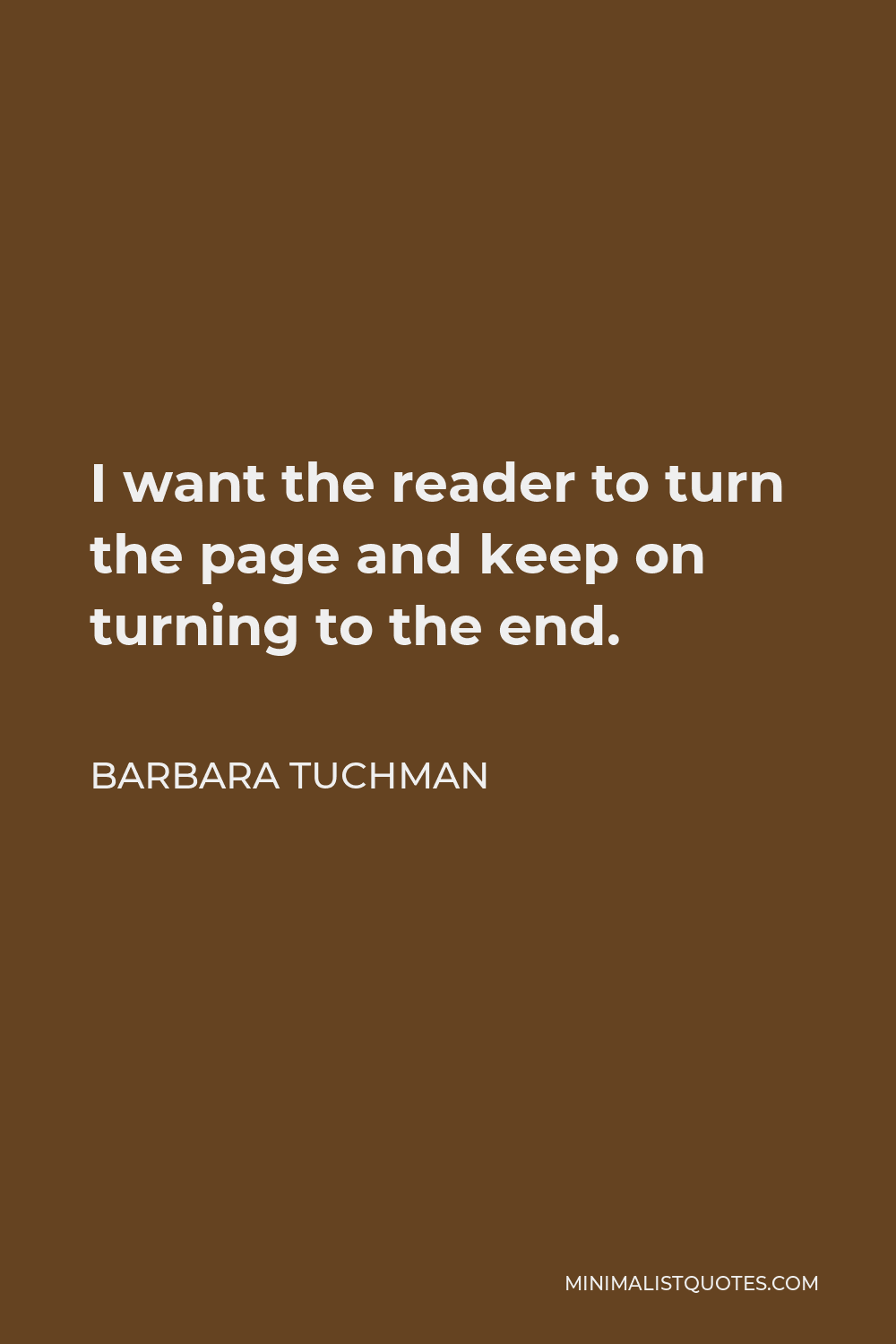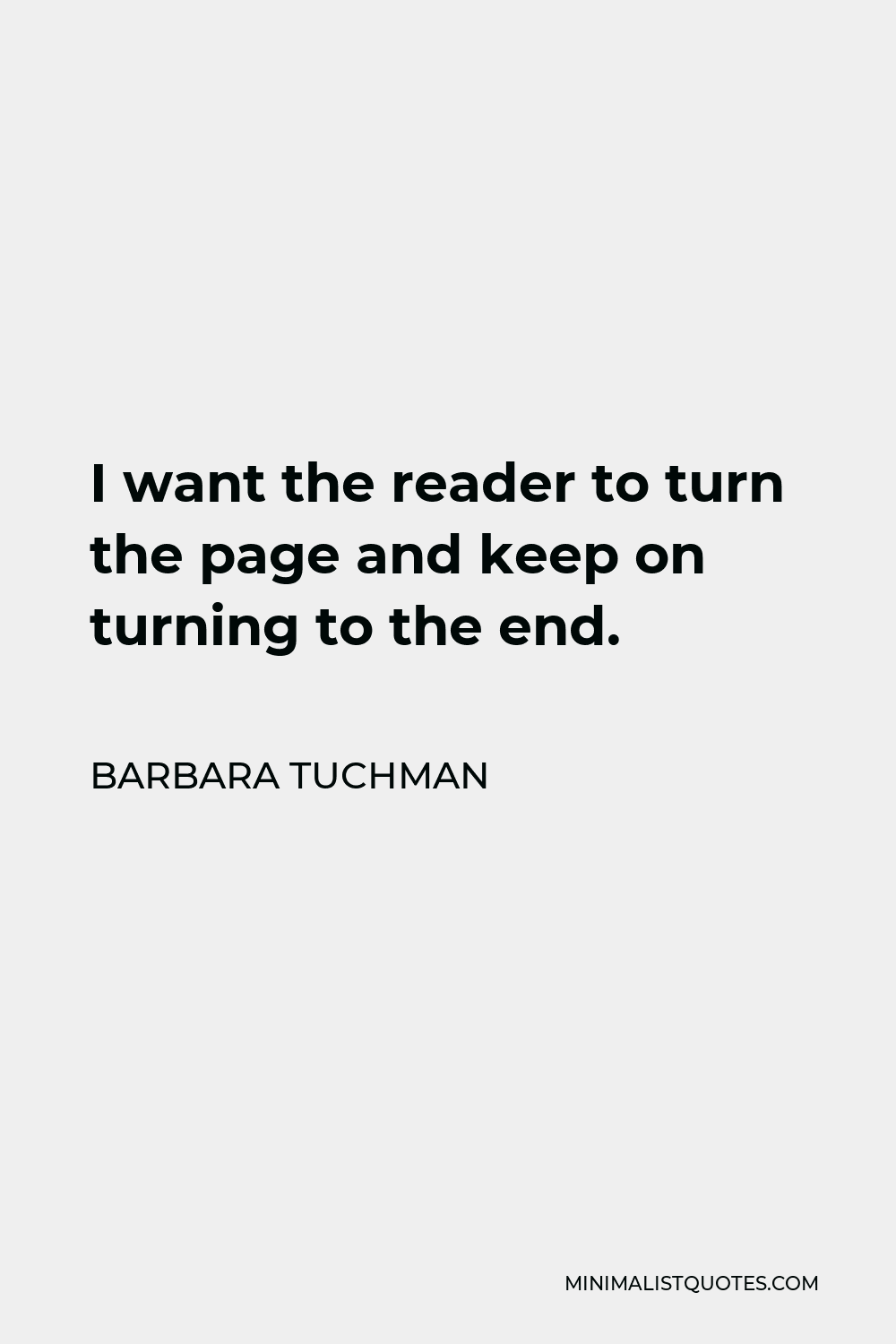Every successful revolution puts on in time the robes of the tyrant it has deposed.
BARBARA TUCHMANI want the reader to turn the page and keep on turning to the end.
More Barbara Tuchman Quotes
-





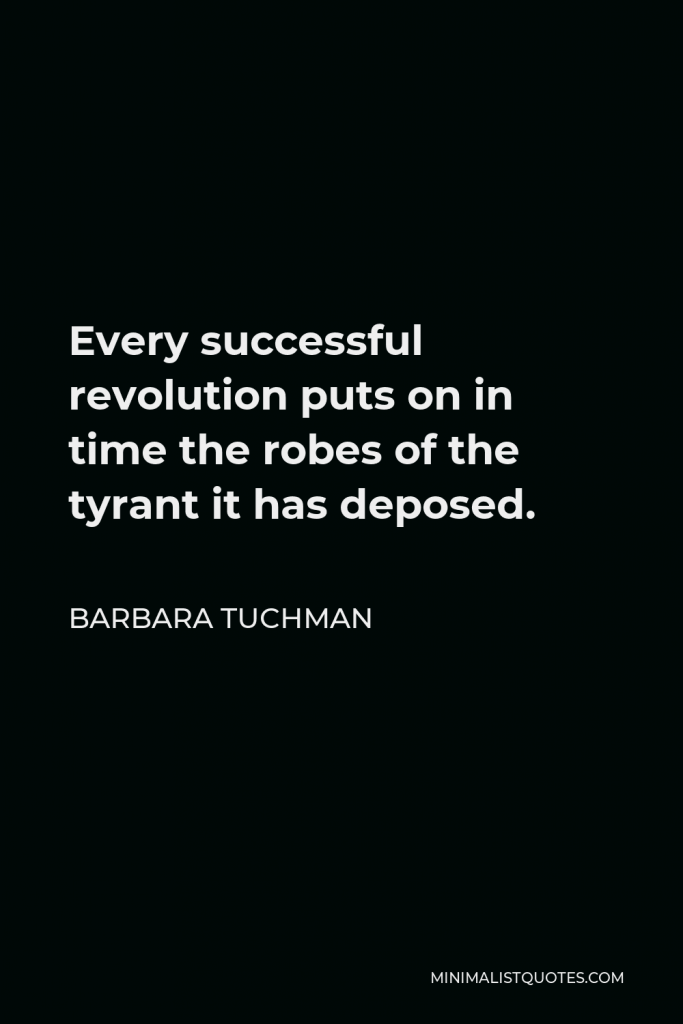

-





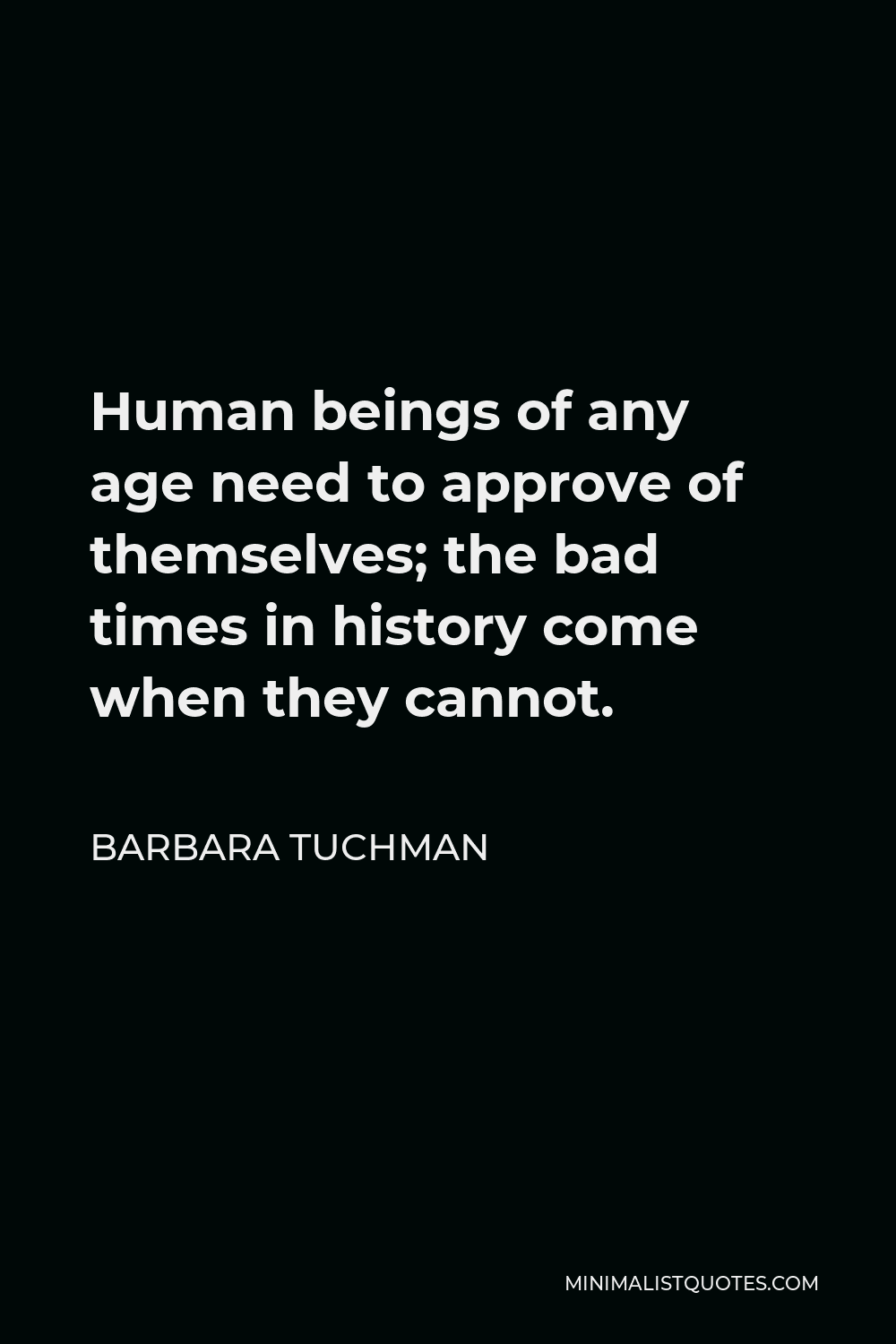
Human beings of any age need to approve of themselves; the bad times in history come when they cannot.
BARBARA TUCHMAN -





![Barbara Tuchman Quote - The Church [in the 14th century] gave ceremony and dignity to lives that had little of either. It was the source of beauty and art to which all had some access and which many helped to create.](https://minimalistquotes.com/wp-content/uploads/2022/10/the-church-in-the-14th-century-gave-ceremony-and-d-683x1024.jpg)

The Church [in the 14th century] gave ceremony and dignity to lives that had little of either. It was the source of beauty and art to which all had some access and which many helped to create.
BARBARA TUCHMAN -





![Barbara Tuchman Quote - The nastiness of women [in the 14th century] was generally perceived at the close of life when a man began to worry about hell, and his sexual desire in any case fading.](https://minimalistquotes.com/wp-content/uploads/2022/10/the-nastiness-of-women-in-the-14th-century-was-gen-683x1024.jpg)

The nastiness of women [in the 14th century] was generally perceived at the close of life when a man began to worry about hell, and his sexual desire in any case fading.
BARBARA TUCHMAN -





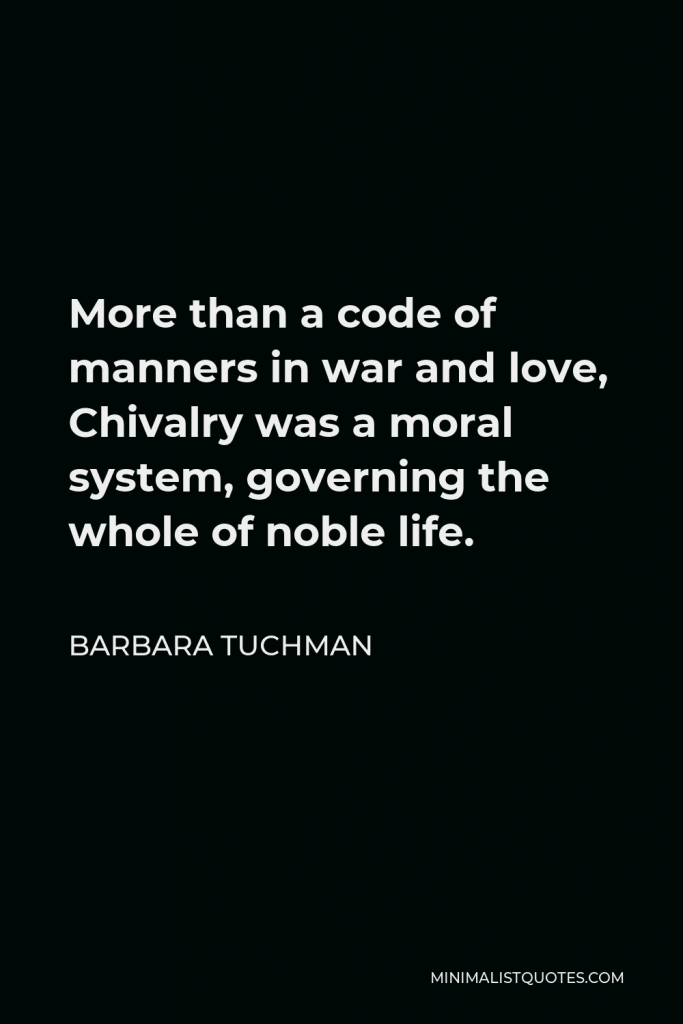

More than a code of manners in war and love, Chivalry was a moral system, governing the whole of noble life.
BARBARA TUCHMAN -





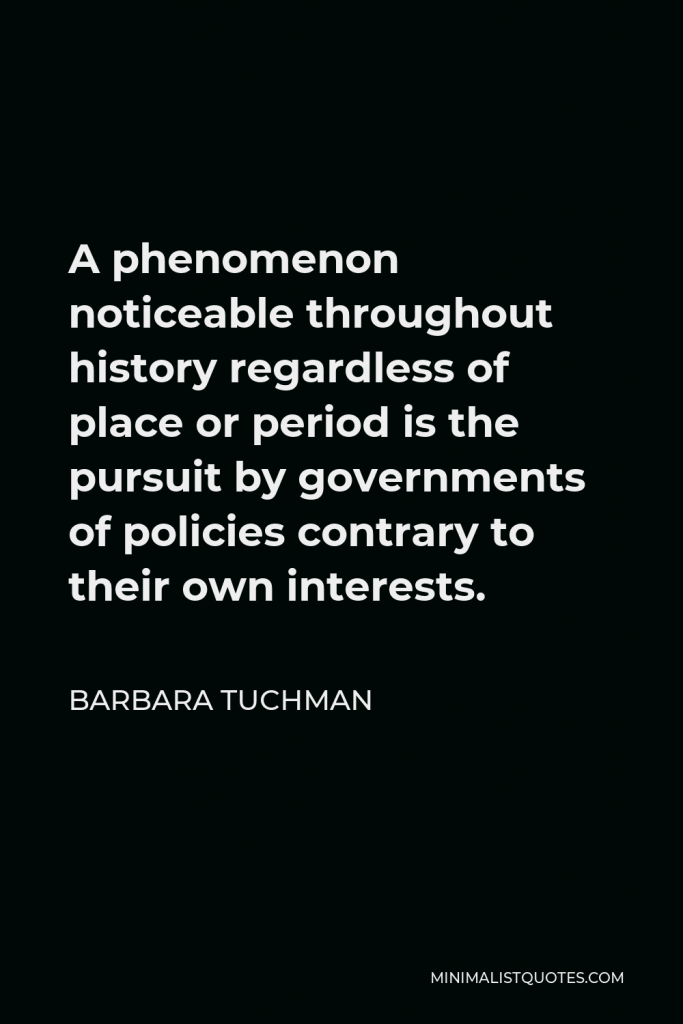

A phenomenon noticeable throughout history regardless of place or period is the pursuit by governments of policies contrary to their own interests.
BARBARA TUCHMAN -





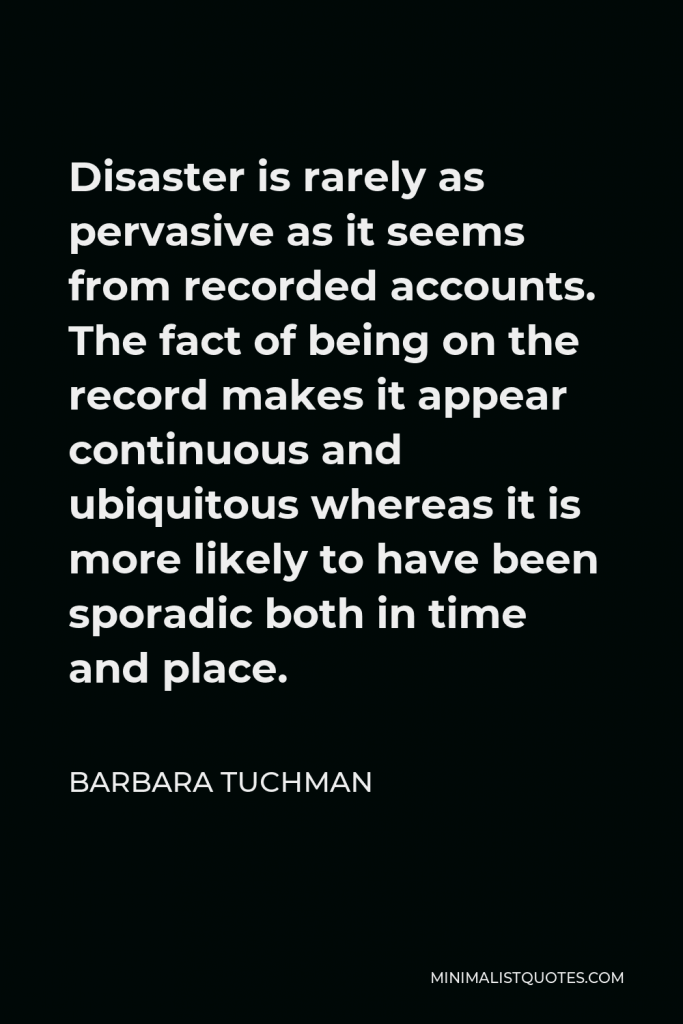

Disaster is rarely as pervasive as it seems from recorded accounts. The fact of being on the record makes it appear continuous and ubiquitous whereas it is more likely to have been sporadic both in time and place.
BARBARA TUCHMAN -





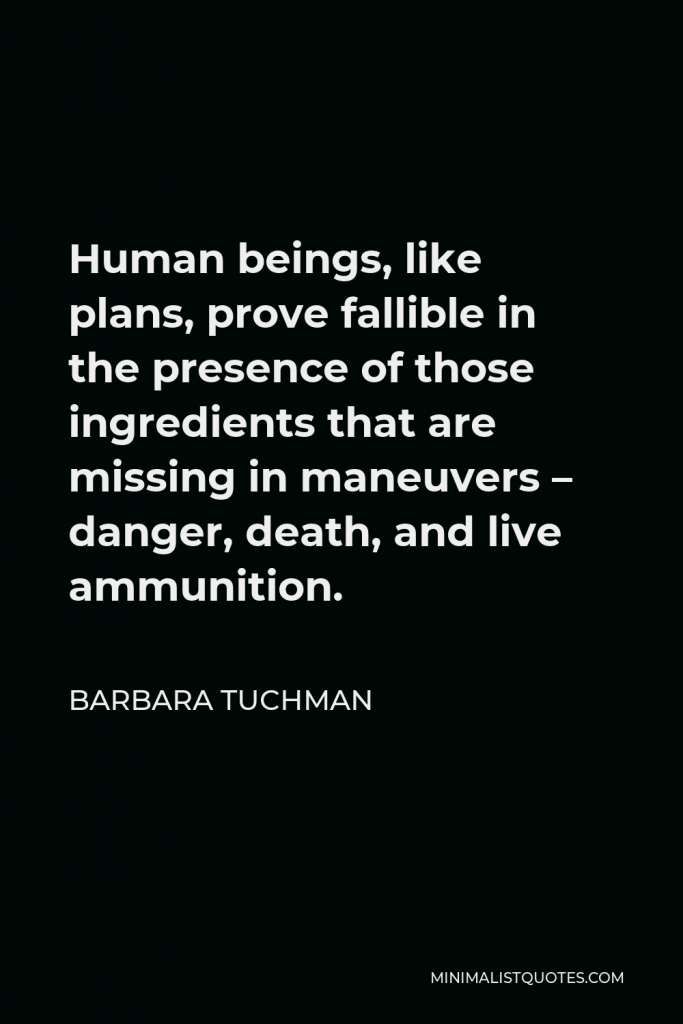

Human beings, like plans, prove fallible in the presence of those ingredients that are missing in maneuvers – danger, death, and live ammunition.
BARBARA TUCHMAN -





![Barbara Tuchman Quote - The clergy [in the 14th century] on the whole were probably no more lecherous or greedy or untrustworthy than other men, but because they were supposed to be better or nearer to God than other men, their failings attracted more attention.](https://minimalistquotes.com/wp-content/uploads/2022/10/the-clergy-in-the-14th-century-on-the-whole-were-p-683x1024.jpg)

The clergy [in the 14th century] on the whole were probably no more lecherous or greedy or untrustworthy than other men, but because they were supposed to be better or nearer to God than other men, their failings attracted more attention.
BARBARA TUCHMAN -





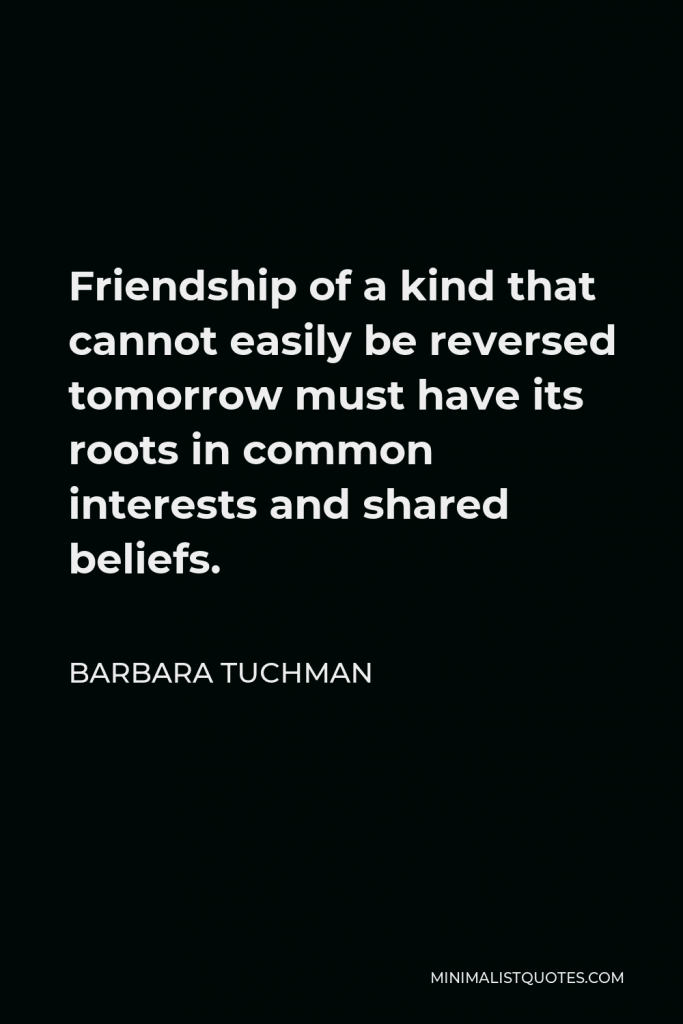

Friendship of a kind that cannot easily be reversed tomorrow must have its roots in common interests and shared beliefs.
BARBARA TUCHMAN -





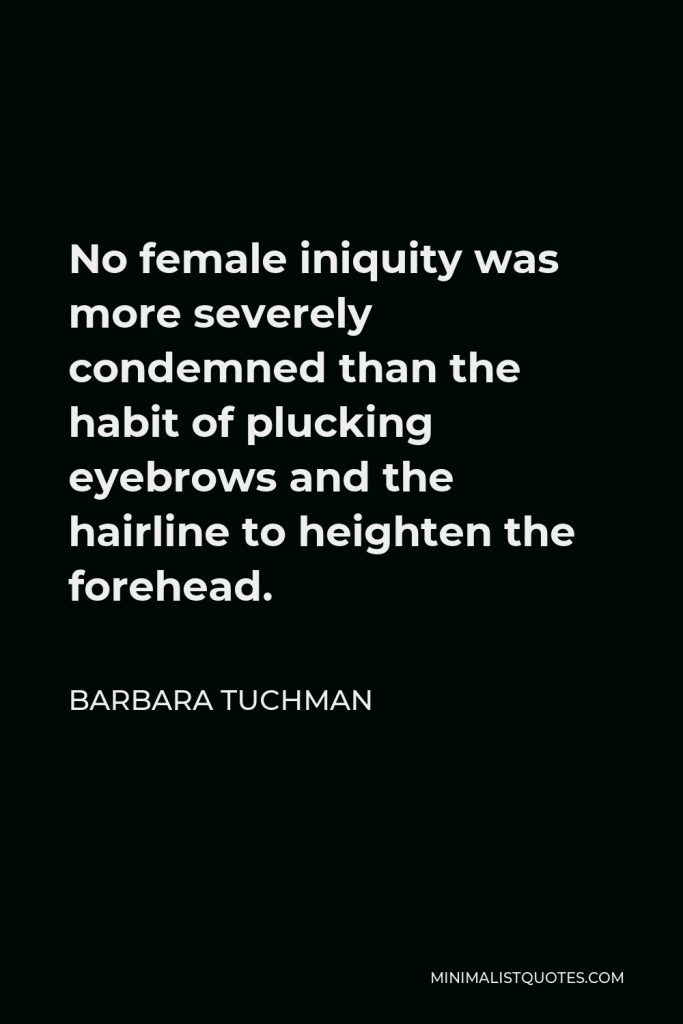

No female iniquity was more severely condemned than the habit of plucking eyebrows and the hairline to heighten the forehead.
BARBARA TUCHMAN -





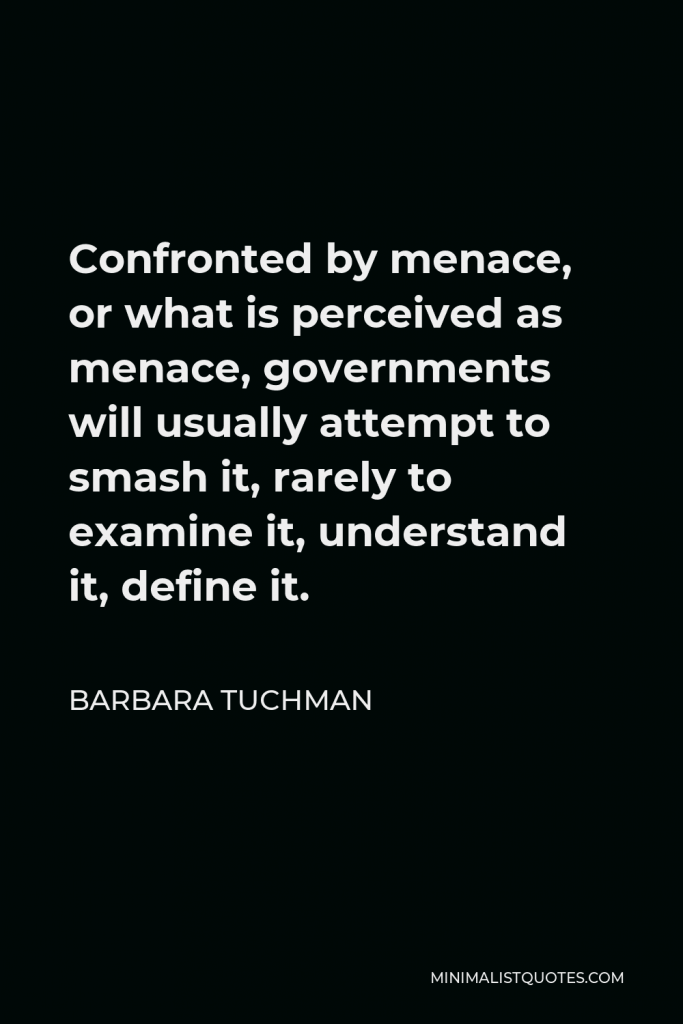

Confronted by menace, or what is perceived as menace, governments will usually attempt to smash it, rarely to examine it, understand it, define it.
BARBARA TUCHMAN -





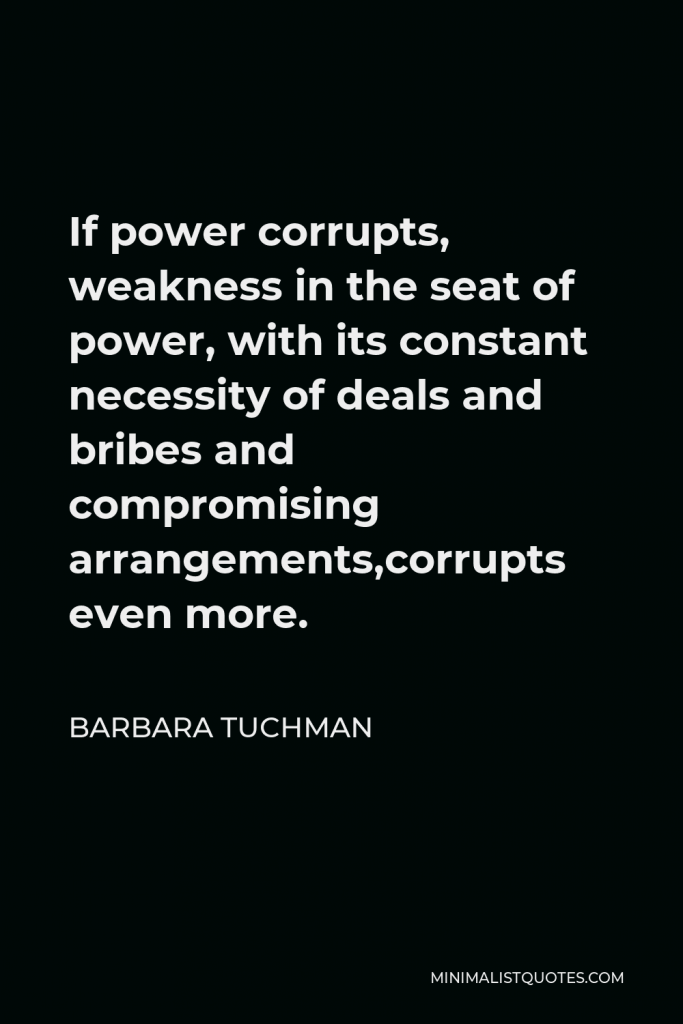

If power corrupts, weakness in the seat of power, with its constant necessity of deals and bribes and compromising arrangements,corrupts even more.
BARBARA TUCHMAN -





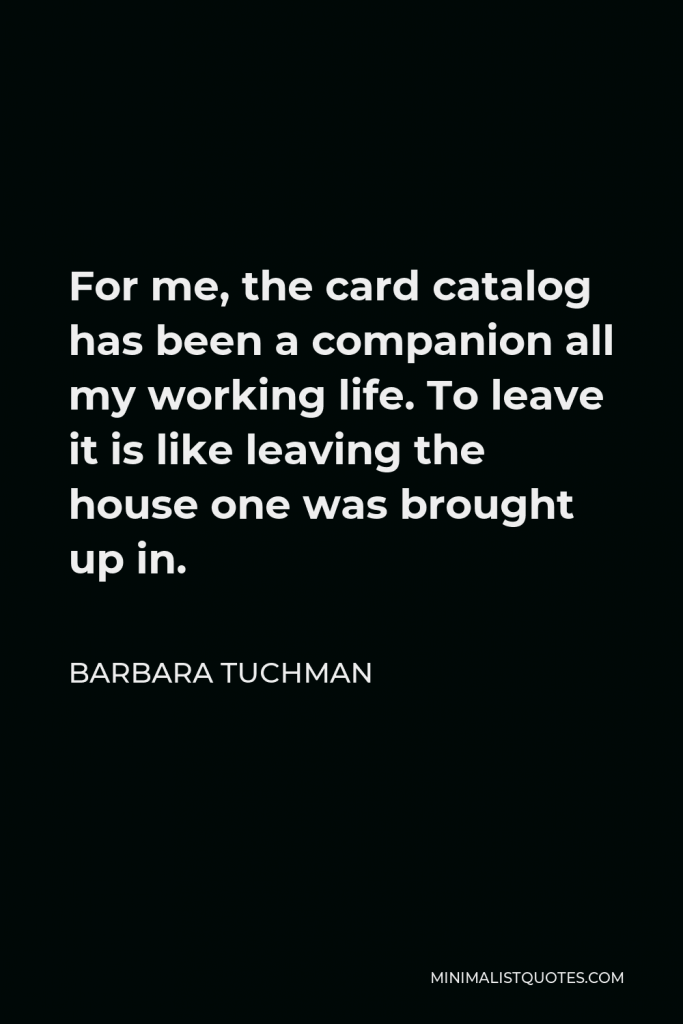

For me, the card catalog has been a companion all my working life. To leave it is like leaving the house one was brought up in.
BARBARA TUCHMAN -





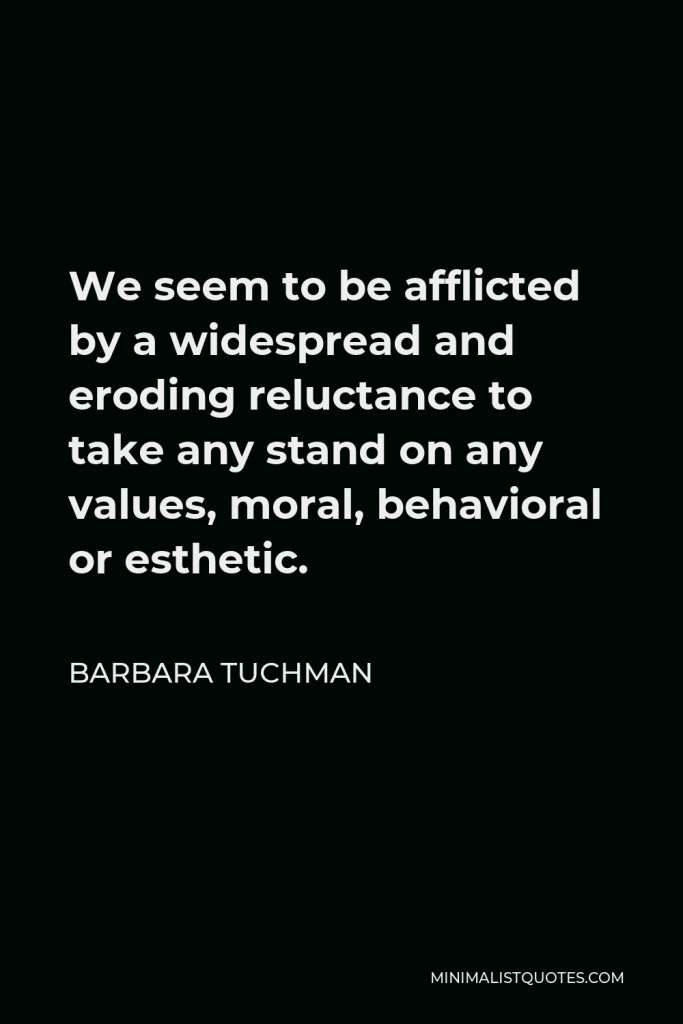

We seem to be afflicted by a widespread and eroding reluctance to take any stand on any values, moral, behavioral or esthetic.
BARBARA TUCHMAN -





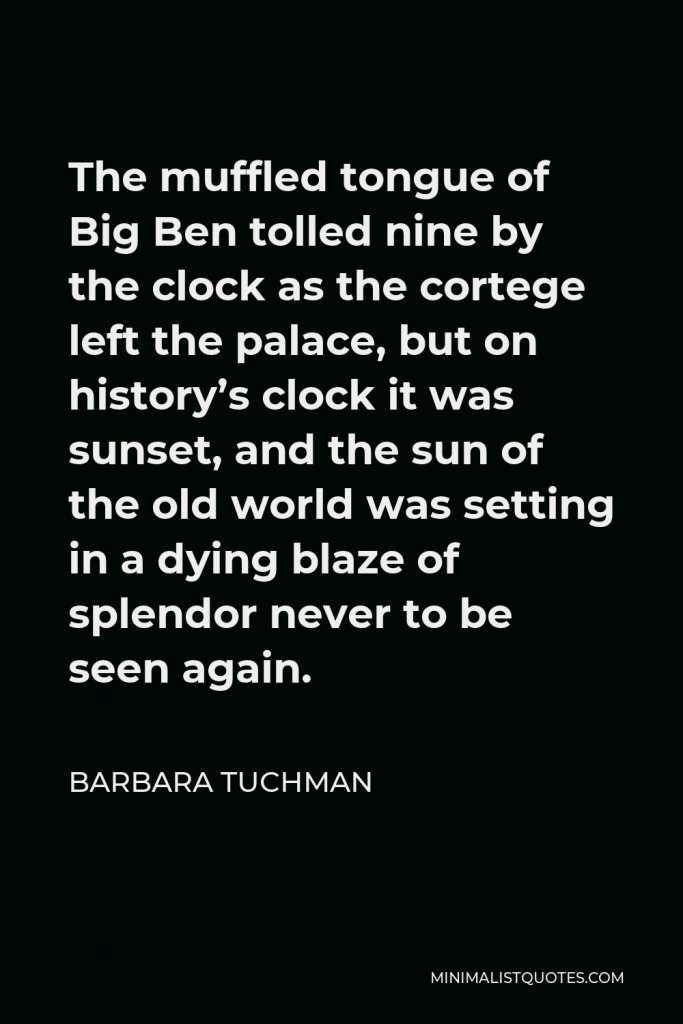

The muffled tongue of Big Ben tolled nine by the clock as the cortege left the palace, but on history’s clock it was sunset, and the sun of the old world was setting in a dying blaze of splendor never to be seen again.
BARBARA TUCHMAN
